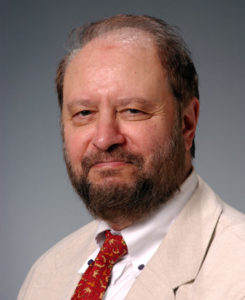Editorial questions measurement frequently used in population health studies

In a new American Journal of Public Health (AJPH) editorial, a UNT Health Science Center professor challenges a conventional research formula for measuring the health of populations, calling the method age discriminatory.
M. Harvey Brenner, PhD, Professor of Health Behavior and Health Systems at the UNT Health Science Center School of Public Health, said he was prompted to respond to recently published data ranking cancer as a higher health concern than heart disease, based on Years of Life Lost (YLL) comparisons of the years 1995-2015.
The commonly applied YLL formula estimates an average number of years a person would have lived if he or she had not died prematurely, due to certain causes. YLL is used in public health planning to compare the relative importance of different causes of premature deaths within a given population, to set priorities for prevention and compare premature mortality data between populations.
“On the basis of YLL, cancer is now being ranked as a more prominent cause of death than heart disease in the United States,” Dr. Brenner said. “However, heart disease should be logically viewed in conjunction with stroke, also a cardiovascular disease, and with the underlying components of the disease, including hypertension and arteriosclerosis.”
With YLL, a greater weight is correlated to deaths occurring at a younger age.
“Because heart disease impacts older individuals to a greater degree, YLL ranks it lower than other causes of death affecting younger adults with more potential years of life left,” Dr. Brenner said. “Not only does this minimize the health needs of the United States’ growing aging population, it could also greatly impact future health policy decisions related to funding and resources for medical and preventive care to older populations.
“According to the YLL metric, a 50-year-old person is less worthy than a 35-year-old person, who is less worthy than a 25-year-old person and so on. The formula profoundly discriminates, without consideration of the value and experience of older adults who are still productive and contributing to society, the workplace and the economy in general, and in terms of the knowledge and experience they offer,” he said.
Because the formula is only based on current productivity, it may also discriminate against disabled populations among other groups than the elderly.
The aging Baby Boomer population and continued steady rise in the life span of older adults suggest the need to adjust the YLL model to more realistically address discrimination in older and disabled populations, Dr. Brenner said.



![Uyen Sa Nguyen Scaled[58]](https://www.unthsc.edu/newsroom/wp-content/uploads/sites/16/Uyen-Sa-Nguyen-scaled58-145x175.jpg)

Social media